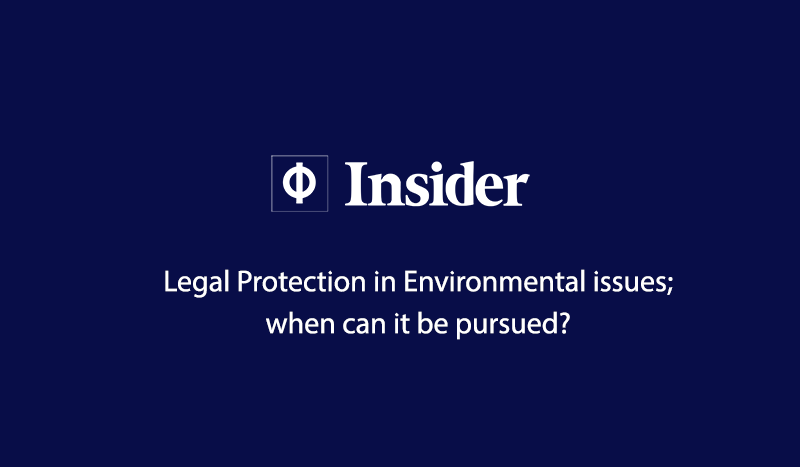In the last few years Cyprus has experienced cases of environmental damages. These have highlighted the importance of the question: when can persons pursue legal protection for environmental issues? A study of the Cyprus constitution reveals a lack of a specific relevant provision. Elena Riga, Senior Associate and Ioannis Sidiropoulos, Associate of our firm, have published an article in the Insider magazine of the Fileleftheros newspaper providing an analysis on this problem which affects the interests of many people in our country.
The constitution of Cyprus includes provisions guaranteeing the rights of life, which are closely connected with the quality of the natural and cultural environment. Moreover, several specific laws include actions and obligations of citizens and, mostly, of Public institutions, intended to protect the environment. A very important notion in this issue is the one of legitimate interest. In general, a person has a right for legal action, when he has an interest which is personal, immediate and present.
However, where environmental rights are affected, it is accepted that the requirements mentioned above are less strict, allowing for a wider circle of affected persons to pursue legal remedies. This position is affirmed by Cyprus case law such as in the cases of “Friends of Akamas group v. Republic of Cyprus”, 1998 4 A.A.Δ (Supreme Court of Cyprus) 767 (available in Greek only), “Republic v. Pyrgon Community”, 1996 3 Α.Α.Δ. 503 (available in Greek only), and “Symonis and another v. The improvement board of Latsia”, 1984 3 A.A.Δ. 109.
If you have any questions or require any clarification on this matter, please contact Elena Riga or Ioannis Sidiropoulos or your usual contact at Elias Neocleous & Co LLC.


